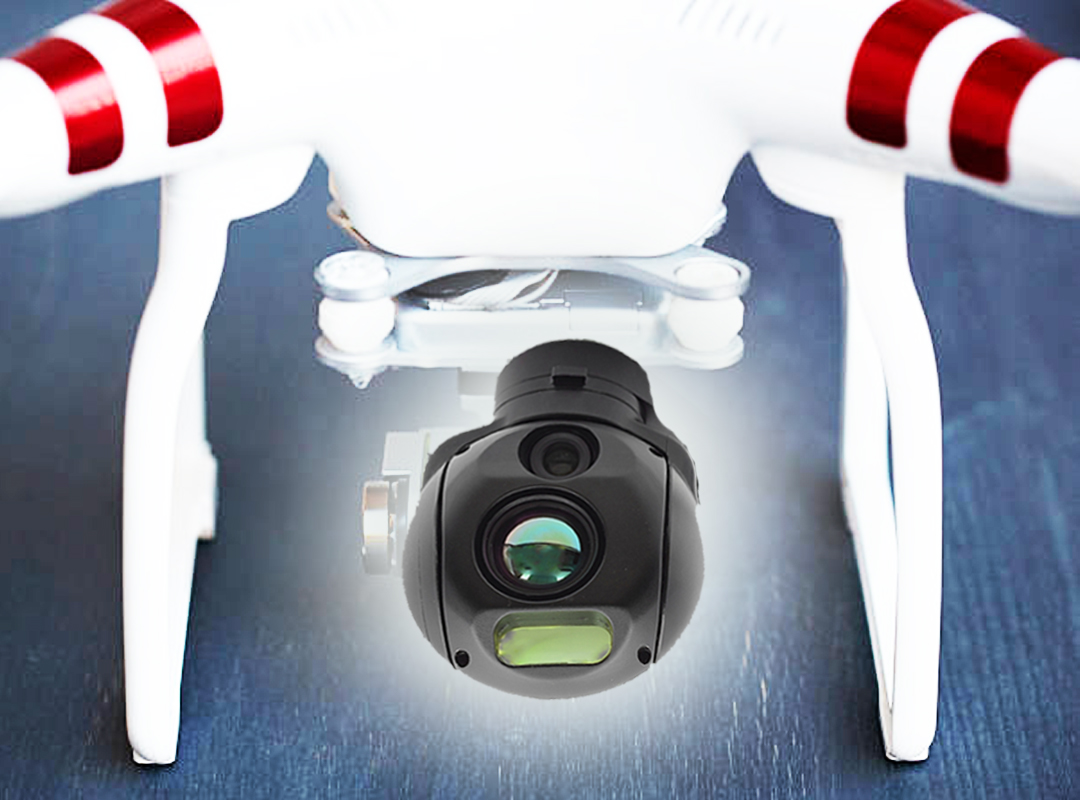A drone gimbal is a mechanical device mounted on a drone to stabilize the camera or sensor, and by precise control, it achieves the function of stable shooting and expanding the viewing angle. Drone gimbals also have the advantages of real-time image transmission, technological application expansion, and enhanced safety. With the continuous development in fields such as UAVs, unmanned vehicles, and robots, drone gimbals will play an increasingly important role in advancing the drone era.

The drone gimbal camera adopts an integrated highly integrated design. It is used for the three-axis mechanical gimbal of professional drones to increase stabilization and ensure high-definition video recording with high integration. This way, users can stably shoot videos or images with the drone gimbal camera, just like using an ordinary action camera, without the need for additional stabilizer equipment.
The stability of the drone gimbal camera's own structure is an important performance indicator of the gimbal. It directly affects the gimbal's image stabilization effect. A reasonably stable drone gimbal camera structure plays a significant role in improving drone operation performance. Due to factors such as vibration and airflow disturbances of the drone, using some structures or materials to isolate vibrations can effectively solve these problems.
The drone gimbal camera is mainly divided into three types:
Single-axis gimbal
Supports only one-directional rotation, suitable for smooth time-lapse photography and panoramic photos.
Dual-axis gimbal
Supports horizontal and vertical rotation, can be used for shooting smooth videos and moving objects.
Three-axis gimbal
Fully supports all rotation axes, providing a more stable shooting experience, suitable for high-demand photography and videography.
Load capacity
It must meet the weight of the camera to avoid the gimbal being unable to bear the weight.
Rotation speed
Affects the gimbal's response speed and shooting smoothness.
Battery life
Long battery life can meet the needs of long time shooting.
Control method
Wired or wireless control, wireless control is more convenient and flexible.
Eyoung drone gimbal cameras are divided into two types, one is dual sensor, and the other is three-sensor.
Dual sensor drone gimbal camera
Integrates the advantages of thermal imaging camera and optical camera, characterized by small size, light weight, and easy installation.
Three-sensor drone gimbal camera
Equipped with a high-precision laser rangefinder, it has long-distance capability. Compared with the dual sensor drone gimbal, it is larger in size and its performance is also more powerful.
Eyoung's drone gimbal cameras are widely used in industrial fields such as surveying and mapping, safety, and energy inspection, providing customers with reliable customized drone gimbal camera solutions.